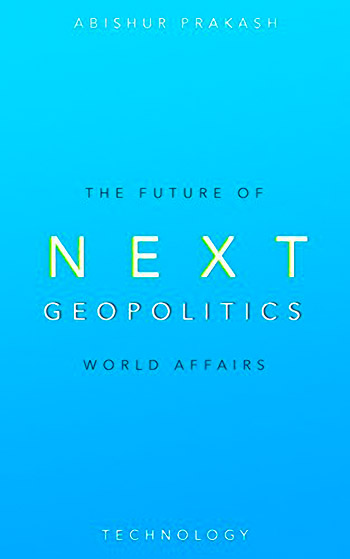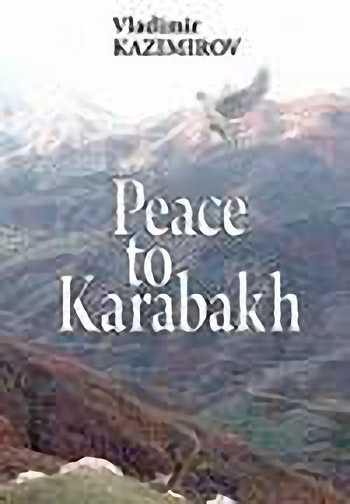Внутренняя политика России и международная политика
Онлайн библиотека книг, статей, докладов, документов
In the run-up to the 52nd edition of the Munich Security Conference (12 to 14 February 2016) the MSC is releasing its second Munich Security Report (MSR) featuring important trends and issues in international security. Last year’s edition was downloaded more than 25,000 times. Entitled "Boundless Crises, Reckless Spoilers, Helpless Guardians," the new MSR compiles data, analyses and maps which illuminate major developments and critical challenges to international security. The MSR serves as a conversation starter for the 52nd Munich Security Conference (MSC) and as a background reading for MSC participants, but is also made available to security professionals and the interested public. Among the key topics of this year's edition are the crisis of the European security order, the war in Syria and the global activities of jihadist terrorist groups. Moreover, the report sheds light on the refugee crisis and the security implications of global climate and health policies. The report was prepared in cooperation with numerous renowned partners, including Chatham House, the International Institute for Strategic Studies (IISS), IHS Jane's, UNHCR and the Mercator Institute for China Studies.
On 26 January 2015, the Munich Security Conference (MSC) has published the first Munich Security Report (MSR), an annual digest on critical questions and important trends in the field of international security policy. This year's inaugural edition is called "Collapsing Order, Reluctant Guardians?" In addition to providing short summaries of key issues, the report features a selection of some of the most insightful analyses, charts, and maps that can help illuminate crucial challenges in the realm of international security. The report serves as a conversation starter for the debates at the Munich Security Conference and background reading for MSC participants, but also represents a contribution to the security-policy debate and addresses the interested public. Topics of this year's report include different aspects and consequences of the Ukraine crisis, a survey of recent developments in jihadist extremism, new challenges such as hybrid warfare, and the global refugee crisis.
13 years after the tragic events of 9/11, al-Qa‘ida can count on as many regional nodes as never before as well as on a still significant influence over the wider jihadi galaxy, thus showing the strenght of its message and of its modus operandi. However, the past few years were marked by the surge of a number of factions that, while sharing several features with the group founded by Osama bin Laden, developed new and often competing political views. Such new actors pose a threat to al-Qa‘ida’s supremacy over the whole jihadi community. In this context, the e-book "New (and old) patterns of jihadism: al-Qa'ida, the Islamic State and beyond" will address the following questions: how did the Islamic State emerge in Iraq and Syria? How serious is the challenge it poses to the international community and to al-Qa‘ida? What impact is to be expected on the Tunisian and Libyan Ansar al-Shariah branches operating throughout North Africa and beyond? Can Sinai become the next frontier of jihadism, and how is it affected by instability in Libya and Palestine? Who are the European jihadists fighting in Syria and Iraq? How do security agencies perceive the threat of transnational extremist networks, and which strategies do they implement to face them?
Written by a leading geopolitical futurist, each of the eight chapters revolve around provocative scenarios, like which country is responsible for a designer baby that is designed in the United Kingdom but born in India, and how will governments decide what is an act of war in the age of autonomous robots and artificial intelligence?
The 2014 Nuclear Threat Initiative Nuclear Materials Security Index is the second edition of a unique public assessment of nuclear materials security conditions around the world. Developed with the Economist Intelligence Unit (EIU), the NTI Index was created to assess the security of nuclear materials around the world and to encourage governments to take actions and provide assurances about the security of the world’s deadliest materials. It has sparked international discussions about priorities required to strengthen security. The NTI Index draws on NTI’s nuclear expertise, the EIU’s experience in constructing indices, and the reach of the EIU’s global network of hundreds of analysts and contributors. NTI—together with an international panel of nuclear security experts and a number of technical advisors—developed the framework and priorities that define effective nuclear materials security conditions. The EIU was responsible for developing the analytic model and gathering the data.
In a year of renewed interest in the OSCE, the 20th edition of the OSCE Yearbook contains analyses, descriptions and reports by experts, insiders and decision-makers on the world's largest regional security organization, its work and participating States. A special focus section considers the Helsinki +40 Process against the background of the crisis in Ukraine. Highlights include former Russian Foreign Minister Igor Ivanov on the OSCE's ongoing relevance, and OSCE Secretary General Lamberto Zannier on the Organization as a regional arrangement under the UN Charter. Steven Pifer also discusses recent events in US-Russia relations. The participating States in the spotlight this year are Turkmenistan, newcomer Mongolia, and the UK, in the context of the referendum on Scottish independence. The section on conflict prevention and dispute settlement is largely dedicated to the Ukraine crisis. Here, renowned experts deal with the challenges and opportunities presented by the OSCE's Special Monitoring Mission; analyse the strategic struggle between Russia and Ukraine; consider Russia's motivations; and outline the development of Ukrainian civil society. Other contributions are dedicated to the Nagorno-Karabakh conflict, election observation, conventional arms control against the backdrop of the Ukraine crisis, and the OSCE Mediterranean Partnership four years after the "Arab Spring."
Although some of today's armed conflicts seem unsolvable, the fact is that in the last three decades, four out of five of the armed conflicts have concluded with a peace agreement at a negotiating table, and not with the military victory of one of the parties. Almost half of today's conflicts, however, are still active, and pose a serious challenge to peace diplomacy which seeks to reduce the levels of violence and conduct parties to the path of negotiations. This book, which is based on the observation of a large number of negotiations and on the author's own experience, emphasizes those methodologies that have proven to be most useful in terms of ensuring the smooth running of a peace process, and which may help overcome the numerous crises that may be encountered along the way.
A book focuses on Russia’s efforts to resolve the ethnopolitical conflict in Transcaucasia the hat grown into a real war, especially at the most difficult stage of active and fierce hostilities, right up to the conclusion of a ceasefire agreement, in effect since 12 May 1994. The author, Vladimir Kazimirov, who was the head of Russia’s mediatory mission, Plenipotentiary Representative of the Russian President for Political Settlement of the Conflict over Nagorno-Karabakh (1992-1996), reveals the content of the mediator’s very complicated work with the conflicting parties, full of all kinds of vicissitudes, offering characterisations of the participants in that process and an assessment of their positions.
Asia stands out as the world’s most vibrant region, where rivalries and confrontation coincide with increased economic cooperation and community building. How should we interpret these two dynamics, and what are the implications for U.S. policy? With the support of the MacArthur Foundation, Asahi Shimbun, Joongang Ilbo, and China Times, the Center for Strategic and International Studies (CSIS) collaborated with Opinion Dynamics Corporation on a survey of strategic elites in 11 Asia Pacific economies.
Authors Greg Austin, professorial fellow at EWI, and Sandro Gaycken, senior researcher in computer science at the Free University of Berlin, outline specific steps to be taken to protect Internet infrastructures around the globe. Resetting the System offers bold recommendations, but admits that the necessary changes are expensive and the traditionally free, mostly unregulated market may balk at some of them. Governments can create the incentives for this new approach to cybersecurity, but the private sector will need to take the lead in implementing them.









